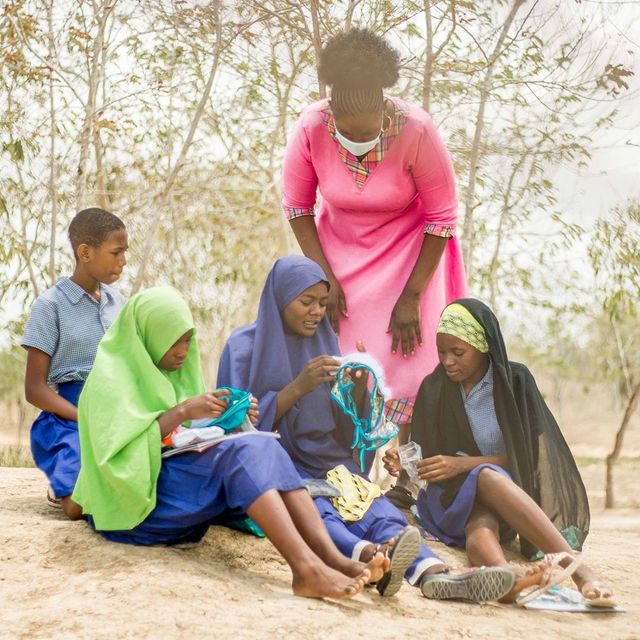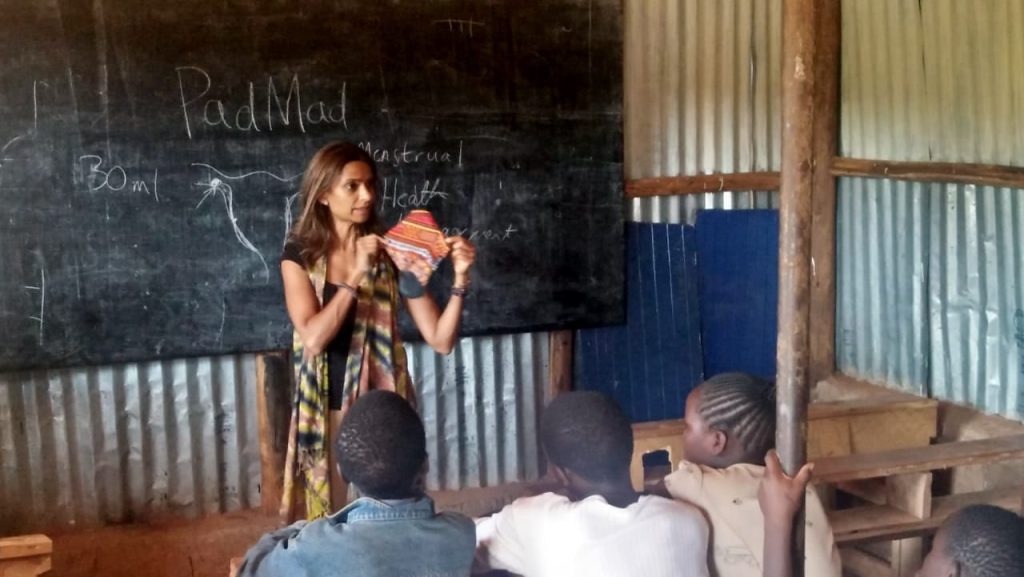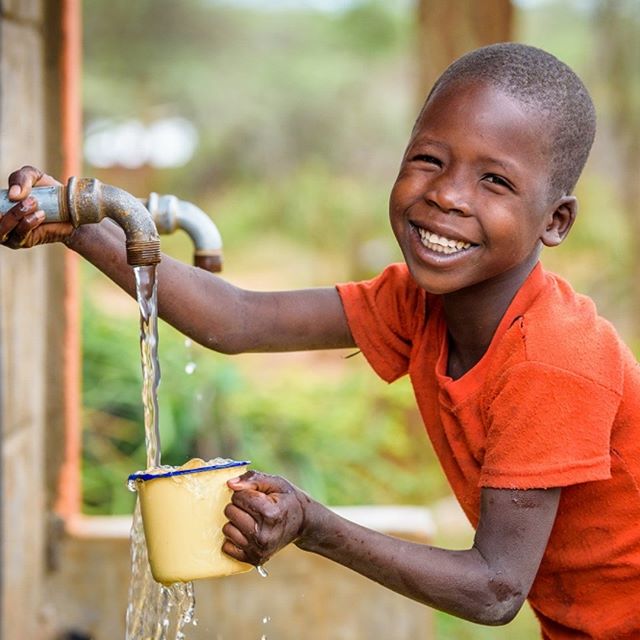Menstruation is a natural biological process experienced by half the world’s population. However, despite its universality, it has been surrounded by taboos, cultural practices, and misconceptions that affect women’s health and well-being. In many parts of the world, menstruation is more than a biological event—it’s intertwined with culture, tradition, and societal norms. These cultural beliefs can sometimes create barriers to accessing modern menstrual hygiene products and health education, putting women’s physical and mental health at risk.
In this article, we’ll explore how cultural practices influence menstrual hygiene and women’s health. We’ll examine the impact of these practices on access to safe and sanitary conditions, the need for integrating modern hygiene solutions, and the importance of fostering an environment that respects both tradition and modern health needs.
A Detailed Explanation of Cultural Practices and Menstrual Hygiene
Menstrual Taboos: A Global Issue
Across the globe, menstruation is shrouded in cultural myths and taboos. In some societies, menstruating women are viewed as impure or unclean. These misconceptions often dictate where women can go, what they can do, and who they can interact with during their menstrual cycles. For example, in parts of India and Nepal, women are often restricted from entering temples or kitchens during menstruation, fearing contamination of sacred spaces or food.
In countries like Afghanistan and Iran, myths suggest that menstruating women should not bathe, believing it could cause illness. These practices, rooted in culture, often prevent women from maintaining proper hygiene, which increases the risk of infections.

Restricted Access to Menstrual Products
Cultural stigmas surrounding menstruation often go hand-in-hand with limited access to modern menstrual hygiene products. In many rural or conservative communities, menstruation is seen as a private matter, one not openly discussed. As a result, young girls may lack proper education on menstrual health and are often forced to use unhygienic alternatives, such as rags, leaves, or old clothing.
This lack of access to safe and effective sanitary products can lead to serious health issues, including reproductive and urinary tract infections. Moreover, without adequate resources, women and girls might feel ashamed or embarrassed, leading them to miss school or work during their periods, perpetuating cycles of poverty and gender inequality.
Health Risks from Traditional Practices
Many cultural practices that restrict menstrual hygiene can directly impact women’s health. In parts of Nepal, the practice of chhaupadi forces menstruating women to live in isolated huts during their periods, often in unsanitary conditions. This practice exposes women to harsh weather, wild animals, and even death from snake bites, extreme cold, or smoke inhalation from fires they light to keep warm. Although chhaupadi has been officially banned in Nepal, it still persists in many rural areas due to deeply ingrained cultural beliefs.
Similarly, in parts of Africa, menstruating women are sometimes considered unclean and are forbidden from accessing clean water sources. Without proper water access, maintaining menstrual hygiene becomes impossible, which can lead to infections and other health complications.
The Need for Respectful Integration of Modern Hygiene Practices
While cultural traditions around menstruation can provide a sense of identity and belonging, they often clash with modern health recommendations. The key challenge is integrating modern menstrual hygiene management (MHM) practices in a way that respects cultural values while protecting women’s health.
Educational programs can play a critical role in this integration. Local leaders, educators, and health professionals can work together to provide comprehensive menstrual health education that respects traditional practices while introducing modern, safer hygiene options. It’s important to frame MHM not as a rejection of tradition, but as a way to preserve health and dignity. This respectful approach can help break the taboos surrounding menstruation while improving access to sanitary products and healthcare.

Bridging the Gap Between Tradition and Modernity
Many organizations working in WASH (Water, Sanitation, and Hygiene) are striving to bridge this gap by developing culturally sensitive programs that respect local traditions while promoting safe hygiene practices. For example, in some communities, introducing reusable menstrual pads or menstrual cups has been met with resistance due to cultural discomfort. However, when these products are presented through education programs that engage the entire community—both men and women—they are more likely to be accepted.
Community engagement is key to success. When local leaders, religious figures, and men are included in conversations about menstrual hygiene, it helps to normalize the topic and reduce stigma. Menstrual health is not just a “women’s issue,” and involving the entire community in these discussions ensures that cultural sensitivities are respected while prioritizing health.
How Maji na Ufanisi is Helping
Maji na Ufanisi (MnU), an organization dedicated to WASH initiatives, recognizes the importance of addressing menstrual hygiene through culturally sensitive programs. In regions of Kenya, where menstruation remains a taboo topic, MnU has partnered with community leaders to provide menstrual hygiene education and access to sanitary products.
By incorporating both modern health practices and an understanding of local customs, MnU ensures that its programs are respectful and effective. MnU’s work in schools, where many girls first encounter the challenges of menstruation, focuses on educating both boys and girls about menstrual health. This breaks down stigmas and creates a more supportive environment for young women.
Through its advocacy efforts, MnU also works to influence policy changes that promote better menstrual hygiene management at the governmental level. By aligning with local cultural values and promoting evidence-based health practices, MnU helps create sustainable, respectful change in communities.
Here’s Everything Else You Should Know
Breaking the silence surrounding menstruation is essential for improving women’s health outcomes globally. Cultural taboos, lack of education, and restricted access to hygiene products all contribute to a cycle of shame, poor health, and lost opportunities. By respecting traditions while introducing modern solutions, it’s possible to improve menstrual hygiene management and empower women and girls to lead healthier, more dignified lives.
Conclusion: The Importance of Cultural Sensitivity in Menstrual Hygiene
Navigating cultural practices while ensuring access to modern menstrual hygiene is crucial for women’s health and empowerment. By addressing both tradition and health, organizations like Maji na Ufanisi play a pivotal role in breaking taboos and promoting sustainable, respectful menstrual health solutions. Only through continued education, community engagement, and policy advocacy can we ensure that women and girls everywhere have access to the hygiene and dignity they deserve.
FAQs on Cultural Practices and Menstrual Hygiene
- How do cultural beliefs affect menstrual hygiene?
Cultural beliefs often dictate what women can and cannot do during menstruation, sometimes limiting their access to proper hygiene products and sanitary conditions.
- What are the health risks of poor menstrual hygiene?
Poor menstrual hygiene can lead to reproductive tract infections, urinary tract infections, and skin irritation. In severe cases, it can result in more serious health complications.
- What is chhaupadi and how does it affect women?
Chhaupadi is a practice in parts of Nepal where menstruating women are isolated in huts. It puts them at risk of illness, exposure to harsh elements, and even death.
- How can modern menstrual hygiene practices be integrated into traditional cultures?
Through community education and engagement, modern hygiene practices can be introduced in a way that respects local traditions while prioritizing health.
- Why is menstrual hygiene important for women’s empowerment?
Proper menstrual hygiene allows women and girls to participate fully in education, work, and social activities, reducing gender inequality.
- How can we reduce the stigma around menstruation?
Open conversations, education, and community engagement involving both men and women can help reduce the stigma associated with menstruation.
- What role do men play in supporting menstrual hygiene?
Men play a critical role in normalizing menstruation and supporting access to menstrual hygiene products and education.
- How does Maji na Ufanisi support menstrual hygiene?
MnU supports menstrual hygiene through culturally sensitive education programs and by providing access to sanitary products in marginalized communities.
- What are some common myths about menstruation?
Common myths include beliefs that menstruating women are impure or that bathing during menstruation is harmful. These myths often hinder proper hygiene practices.
- How can schools support menstrual hygiene?
Schools can provide menstrual health education, access to sanitary products, and create a supportive environment for girls to manage their periods with dignity.


